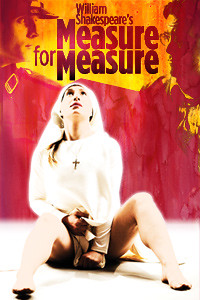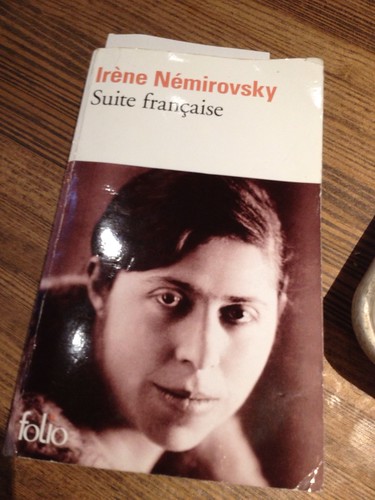I can't believe it's already that time of year again: the air is cooler, the days noticeably shorter, my weekend evenings suddenly full of theatre dates. While I don't love everything about fall (why can't it just be warm all the time?), that last bit makes up for a lot.
This theatre season got off to a pleasant start on Friday, with the Shakespeare Theatre Company's production of Measure for Measure. It snuck up on me by surprise; things have been so busy at work that I'd forgotten all about the play. Fortunately I got a calendar reminder just in time to hit "pause" on whatever I was working on and run out for some pre-theatre dinner at The Shake Shack.
This theatre season got off to a pleasant start on Friday, with the Shakespeare Theatre Company's production of Measure for Measure. It snuck up on me by surprise; things have been so busy at work that I'd forgotten all about the play. Fortunately I got a calendar reminder just in time to hit "pause" on whatever I was working on and run out for some pre-theatre dinner at The Shake Shack.
 |
| I got the "SmokeShack" burger (with bacon, peppers and cheese) with a side of fries. |
And lest you think my dinner choice too low-brow, I ate it while reading Irene Nemirovsky's Suite francaise, which I started some time ago and only recently picked up again.
Nemirovsky was a well-regarded Jewish writer who lived in Paris at the time of the Nazi invasion. She and her family fled the city and, essentially contemporaneously, she started a novel about the exodus from Paris. She was eventually captured and put to death by the Germans and the novel was never published -- at least, not until a few years ago. It came out while I was in law school and all the literary types in New York were buzzing about it. That's when I picked it up the first time. I didn't finish it, though, because sometimes I have these allergic reactions when people around me start getting unbearably pretentious and, in my annoyance with their pretensions, I start to hate the object of those pretensions (in this case, the book). Plus, it was kind of boring.
So why start reading it again? Well, for one thing, pretentious people have stopped talking about it. And for another, last week I was on the beach with Amy, who was reading a history of the cultural life of occupied Paris, which reminded me of Suite francaise and made me think I might as well give it another try (and, really, if Victor Hugo gets a second chance, then EVERYONE gets a second chance).
Not that I did all that much reading anyway -- hamburgers don't really lend themselves to leisurely, cafe-like dining and reading. So I headed outside thinking that I'd read some more on the steps of the museum near the theatre. Only it turns out there was an awesome brass band rocking out on the street corner, which clearly took precedence over fine French prose. (My favorite part? The band leader's hollering during his trombone solo breaks.)
After soaking up the fun street music, I finally made my way into the theatre . . . or should I say into an cabaret of loose morals in inter-war Vienna? Because that's what was happening on stage. Bustiers, fishnet stockings, men in drag (and an unfortunate woman who looked like a man in drag), and lots of bawdy jokes and dance numbers that might have been inappropriate for mixed company (at least, in a pre-"Miley Cyrus twerking" era). Apparently sex was going to be a theme in this show, and they wanted to get it on the table (literally) right away.
 |
| I probably could have gotten that message from the posters, if I'd looked at them... |
I had fun watching the play; it isn't often that I see a Shakespeare play that is totally new to me, and I loved the feeling of wondering what was going to happen. My primary critique was the director's choice to cast Angelo as a Nazi. While it was an effective, shorthand way to condemn Angelo's repressive tactics, I regret how evil and Nazism have become sinonymous. Yes, Nazism is evil, but so are many things that are not Nazism -- including many things that seem familiar and comfortable (maybe event good?) to us. It would be nice to explore the darker recesses of worlds and societies that aren't so obviously condemnable. On the other hand, to be reading a book about the Nazi invasion of Paris, and then to see a representation of Nazism so quickly thereafter, was pleasantly surreal.
I also enjoyed the coincidence of seeing the play on the same day as the Pope's encouragement to the Catholic church that it shouldn't be so fixated on sexual morality that it loses sight of the bigger project of Christianity).

1 comment:
Your choice of bugers always look great to me. Maybe it has something to do with the time of day I'm reading your blog. Now that's an awesome street band! Lady
Post a Comment